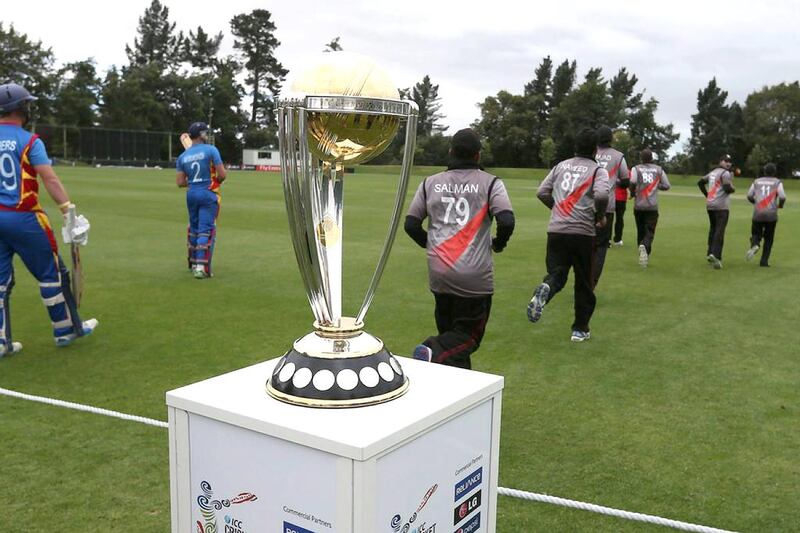The best day in the history of UAE cricket? Probably. A seminal moment? Let us hope so.
For much of the 17 years since the national team last played at a World Cup, the sport has wandered listlessly in this country. We have watched helpless as the likes of Ireland and Afghanistan have barged past them in the pecking order.
Now the UAE are back, ready for the big stage, after yesterday’s win over Namibia in New Zealand confirmed their place in next year’s main event.
The bankers, cabin crew and catering staff who make up the national team richly deserve this chance by way of their performances over the past two years, not to mention their heroic devotion to the cause. The future starts here.
So what happens next? Well, most pressingly, the team needs to be moulded into a force competitive enough to excel when they get to Australia and New Zealand next year.
The salient memory of the UAE at cricket World Cups so far is of a helmet-less Sultan Zarawani, the 1996 captain, being hit in the forehead by an Allan Donald bouncer.
Scars like that may heal quickly, but they take a long while to live down. Similarly, heavy losses on television can be severely detrimental to development. The national team need to be able to compete when they arrive in Australia and New Zealand.
Aaqib Javed, the coach, believes that should be well within the compass of this group of players.
They have Kamran Shahzad, a fast bowler capable of exceeding 140kph. There is a mystery spinner, Nasir Aziz.
Khurram Khan, the captain, has a good claim to be considered one of the best batsmen in Associate cricket history. Then there is Shaiman Anwar, Saqib Ali and Rohan Mustafa besides.
But they need to be given the best chance to excel, according to Aaqib, and that involves drastic measures. They need to be treated as professionals.
“We have 12 months,” the coach said after yesterday’s win over Namibia.
“These amateurs can improve. We will request our cricket board or the government can release these players from their duties so we can work two sessions, day and night.
“I think if we can do that, we can take this team to a different level.”
It is easier said than done. All these players have proper jobs. They cannot just put them on hold for a year or more, even with the best will of their cricket-loving employers.
“Aaqib makes sense from the training of players point of view and I do agree with him,” said Shaji Ul Mulk, who employs many of the country’s leading cricketers as the chairman of Mulk Holdings.
As a former player who once had aspirations of playing at a World Cup, only to miss out due to the pressure of his day job, Ul Mulk is ecstatic about the UAE’s qualification.
However, he says transition from the amateur game to professionalism will not be an easy one to achieve.
“This is also a commercial matter with players right now employed by companies who pay them and they are involved in job responsibilities,” he said.
“I am sure some workable arrangements could be reached with team owners and Emirates Cricket Board to resolve this aspect.”
If the players do opt for cricket over their jobs, and the cricket board is going to be compelled to cover the shortfall in wages, then the coffers will need a boost.
International cricket is in flux at the moment, gripped by double-speak over who is going to be running it in the future.
If the powers that be are to be believed, though, countries on the fringe of the Test game could be about to see their financial status improved.
David Richardson, the chief executive of the ICC, this week said the best performing nations beyond the Test game – of which the UAE are surely one – will be “much better off than before”.
“A larger percentage from the increasing Associate Members’ surplus will be distributed to the higher performing non-Full Members,” he said on Tuesday.
Which is a mealy-mouthed way of saying the UAE should be expecting a cash windfall to come their way. Whatever the future does hold, there should never be an 18-year gap between appearances at World Cups ever again in this country.
It is a scandal that it happened in the first place.
The resources, both in terms of playing personnel, appetite for the sport, administrative knowledge and facilities are far too bountiful for such a hiatus again.
The sport must seize this moment.
pradley@thenational.ae






